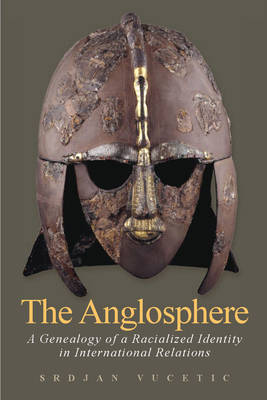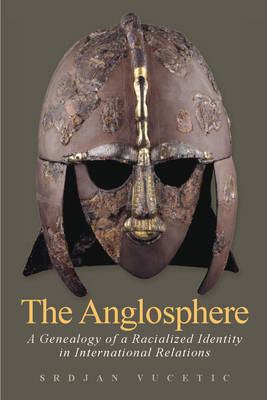
- Afhalen na 1 uur in een winkel met voorraad
- Gratis thuislevering in België vanaf € 30
- Ruim aanbod met 7 miljoen producten
- Afhalen na 1 uur in een winkel met voorraad
- Gratis thuislevering in België vanaf € 30
- Ruim aanbod met 7 miljoen producten
Zoeken
The Anglosphere
A Genealogy of a Racialized Identity in International Relations
Srdjan Vucetic
Hardcover | Engels
€ 177,45
+ 354 punten
Uitvoering
Omschrijving
The Anglosphere refers to a community of English-speaking states, nations, and societies centered on Australia, Canada, New Zealand, the United Kingdom, and the United States, which has profoundly influenced the direction of world history and fascinated countless observers. This book argues that the origins of the Anglosphere are racial. Drawing on theories of collective identity-formation and framing, the book develops a new framework for analyzing foreign policy, which it then evaluates in case studies related to fin-de-siècle imperialism (1894-1903), the ill-fated Pacific Pact (1950-1), the Suez crisis (1956), the Vietnam escalation (1964-5), and the run-up to the Iraq war (2002-3). Each case study highlights the contestations over state and empire, race and nation, and liberal internationalism and anti-Americanism, taking into consideration how they shaped international conflict and cooperation. In reconstructing the history of the Anglosphere, the book engages directly with the most recent debates in international relations scholarship and American foreign policy
Specificaties
Betrokkenen
- Auteur(s):
- Uitgeverij:
Inhoud
- Aantal bladzijden:
- 272
- Taal:
- Engels
Eigenschappen
- Productcode (EAN):
- 9780804772242
- Verschijningsdatum:
- 28/02/2011
- Uitvoering:
- Hardcover
- Formaat:
- Ongenaaid / garenloos gebonden
- Afmetingen:
- 155 mm x 231 mm
- Gewicht:
- 498 g

Alleen bij Standaard Boekhandel
+ 354 punten op je klantenkaart van Standaard Boekhandel
Beoordelingen
We publiceren alleen reviews die voldoen aan de voorwaarden voor reviews. Bekijk onze voorwaarden voor reviews.











